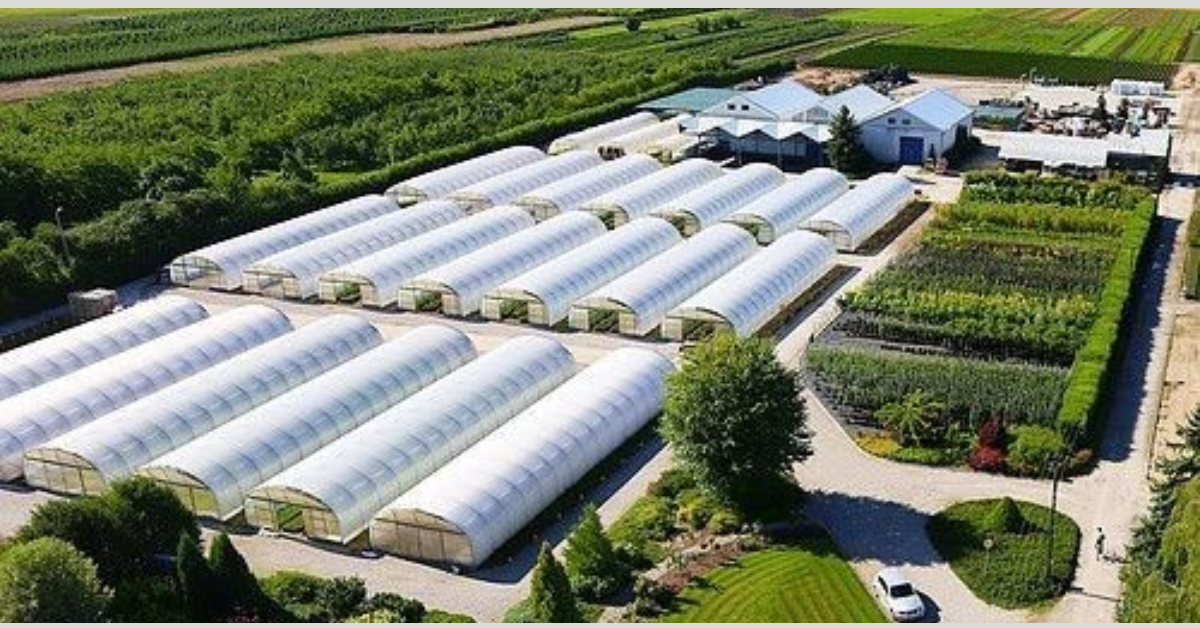In the world of agriculture, the need for efficient, sustainable, and cost-effective solutions is paramount. One such revolutionary solution is the use of Expanded Polystyrene (EPS) panels for insulating agricultural buildings. These panels are transforming the landscape of agricultural infrastructure by offering superior insulation properties, economic benefits, and environmental advantages. This blog post delves into the myriad benefits of EPS panels and how they are proving to be a game-changer for insulating agricultural buildings.
Table of Contents
ToggleUnderstanding EPS Panels
Expanded Polystyrene (EPS) is a lightweight, rigid, plastic foam insulation material produced from solid beads of polystyrene. These beads are expanded and then fused together to form large blocks or panels. EPS panels are renowned for their excellent thermal insulation properties, moisture resistance, and durability. They are widely used in various industries, including construction, packaging, and more recently, agriculture.
Superior Insulation Properties
One of the primary reasons EPS panels are becoming increasingly popular in agricultural settings is their superior insulation properties. Agricultural buildings, such as barns, greenhouses, storage facilities, and livestock shelters, require effective insulation to maintain optimal temperatures and protect the contents from extreme weather conditions.
Thermal Performance
EPS panels have a high R-value per inch, which measures the material’s resistance to heat flow. This high R-value ensures that EPS panels provide excellent thermal insulation, keeping the interior of agricultural buildings warm in the winter and cool in the summer. This consistent temperature regulation is crucial for the well-being of livestock, the preservation of crops, and the storage of agricultural products.

Energy Efficiency
The exceptional insulation properties of EPS panels lead to significant energy savings. By reducing the need for artificial heating and cooling, EPS panels help lower energy consumption, resulting in reduced utility bills. This energy efficiency is particularly beneficial for large agricultural operations that require substantial energy to maintain optimal conditions within their buildings.
Durability and Moisture Resistance
Agricultural buildings are often exposed to harsh environmental conditions, including moisture, humidity, and temperature fluctuations. EPS panels are highly durable and resistant to moisture, making them an ideal choice for such environments.
Water Resistance
EPS panels have a closed-cell structure, which means they do not absorb water. This water resistance prevents the growth of mold and mildew, ensuring a healthier environment for both livestock and crops. Additionally, the lack of moisture absorption helps maintain the integrity and insulating properties of the panels over time.
Longevity
The durability of EPS panels translates into a long lifespan, reducing the need for frequent replacements or repairs. This longevity ensures that agricultural buildings remain well-insulated and protected for many years, providing a reliable solution for farmers and agricultural business owners.
Economic Benefits
The use of EPS panels in agricultural buildings offers several economic advantages, making them a cost-effective solution for insulation.
Affordable Installation
EPS panels are relatively easy to install, reducing labor costs and installation time. Their lightweight nature allows for quick handling and positioning, which is especially beneficial for large-scale agricultural projects. Additionally, the panels can be easily cut to fit specific dimensions, ensuring a precise and efficient installation process.
Reduced Maintenance Costs
The durability and moisture resistance of EPS panels result in lower maintenance costs over time. Unlike traditional insulation materials that may degrade or require frequent upkeep, EPS panels maintain their performance and structural integrity for extended periods. This reduction in maintenance costs contributes to the overall economic viability of using EPS panels in agricultural buildings.
Increased Productivity
By providing a stable and controlled environment within agricultural buildings, EPS panels help enhance productivity. Livestock remain healthier and more comfortable, leading to improved growth rates and higher yields. Similarly, crops and stored products are better preserved, reducing spoilage and waste. These productivity gains translate into increased profitability for agricultural operations.
Environmental Advantages
In addition to their practical and economic benefits, EPS panels offer several environmental advantages, aligning with the growing emphasis on sustainable agricultural practices.
Recyclability
EPS panels are recyclable, making them an environmentally friendly choice for insulation. At the end of their useful life, the panels can be collected, processed, and reused to produce new EPS products. This recyclability reduces the environmental impact and contributes to a circular economy.
Reduced Carbon Footprint
The energy efficiency of EPS panels helps lower the carbon footprint of agricultural buildings. By reducing the need for artificial heating and cooling, EPS panels decrease greenhouse gas emissions associated with energy consumption. This reduction in carbon footprint is particularly significant for large agricultural operations, which often have substantial energy requirements.
Sustainable Manufacturing
The production of EPS panels involves the use of steam and low-energy processes, minimizing the environmental impact of manufacturing. Additionally, EPS does not contain harmful chemicals or ozone-depleting substances, further enhancing its environmental credentials.
Applications in Agricultural Buildings
EPS panels can be used in a variety of agricultural applications, providing versatile and effective insulation solutions for different types of insulating agricultural buildings.
Barns and Livestock Shelters
Maintaining a consistent and comfortable temperature within barns and livestock shelters is crucial for the health and productivity of animals. EPS panels provide excellent insulation, helping to regulate temperature and create a stable environment for livestock. This insulation reduces the stress on animals, leading to better growth rates, improved reproduction, and overall well-being.
Greenhouses
Greenhouses require precise temperature control to optimize plant growth and yield. EPS panels help maintain the ideal temperature range within greenhouses, ensuring that plants receive the necessary warmth and protection from external temperature fluctuations. This consistent environment promotes healthy plant growth and increases the efficiency of greenhouse operations.
Storage Facilities
Agricultural products, such as grains, fruits, and vegetables, need to be stored under controlled conditions to prevent spoilage and maintain quality. EPS panels provide effective insulation for storage facilities, helping to regulate temperature and humidity levels. This insulation extends the shelf life of stored products and reduces the risk of spoilage, resulting in less waste and higher profitability.
Processing Plants
Processing plants in the agricultural industry often require specific temperature conditions to ensure the quality and safety of processed products. EPS panels provide reliable insulation for processing plants, helping to maintain the necessary temperature ranges and protect products during various stages of processing.
Conclusion
EPS panels are indeed a game-changer for insulating agricultural buildings. Their superior insulation properties, durability, economic benefits, and environmental advantages make them an ideal choice for modern agricultural practices. By investing in EPS panels, farmers and agricultural business owners can enhance the efficiency, productivity, and sustainability of their operations. As the agricultural industry continues to evolve, the adoption of innovative solutions like EPS panels will play a crucial role in meeting the challenges of the future and ensuring a prosperous and sustainable agricultural sector.
Also, read
Lightweight Construction Solutions EPS Panels in Modern Architecture


